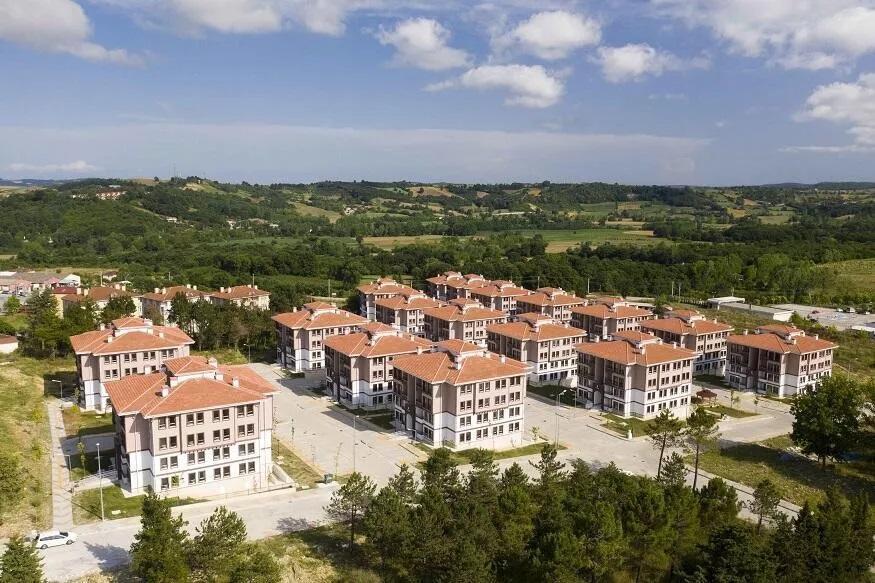
Within the scope of preparation for the major earthquake expected in the Marmara region, 500,000 of the 1.5 million risky residences in Istanbul will be rebuilt on-site, and satellite cities of 500,000 residences will be established on both sides of the megacity to relocate the rest, Environment, Urbanization and Climate Change Minister Murat Kurum has announced.
The foundations of satellite cities, which will be established to move houses at risk of demolition to reserve areas in order to reduce building density and make room for green spaces, will be laid on April 22, Kurum told private broadcaster HaberTürk.
Informing that two satellite cities will be established on the European and Asian sides “without bringing an additional population to Istanbul” within the scope of urban transformation, Kurum said, “We will rebuild 500,000 of our 1.5 million risky residences where they are, and the remaining 1 million in satellite cities.”
The ministry signed a protocol with the Defense Ministry to use the military area between Sultangazi and Başakşehir districts on the European side as a reserve area, he elaborated, adding that the area on the Asian side will be in Tuzla, Pendik and Maltepe districts.
“We will carry our citizens step by step after we do our projects and build reserve residences in those areas, and it will be based on consent,” Kurum stated.
The groundbreaking of the first 10,000 houses will be made with the presence of President Recep Tayyip Erdoğan, he noted.
The megacity with 15.9 million residents that last suffered heavy damage from earthquakes in 1999 is on edge, according to the repeated warnings by experts about the expected quake with a magnitude of 7.0 or higher.
The minister also pointed out that Istanbul Finance Center will open this month.
“We have to make Istanbul a city of service and finance, culture and art as we derive almost 50 percent of our national income and 58 percent of our foreign trade income from it,” he said. “There will also be partial industry, but technological industry.”
The Istanbul Finance Center Project started in 2009 and is being developed in the Ataşehir district. It aims to make Istanbul a competitive destination for international financial institutions and investors and to support the growth of the Turkish economy.
Also providing information about the works carried out in 11 provinces affected by the devastating Kahramanmaraş-centered quakes, Kurum said, “We will deliver the single-story houses we built in the villages to our citizens three months after the earthquake, on Eid al-Fitr.”